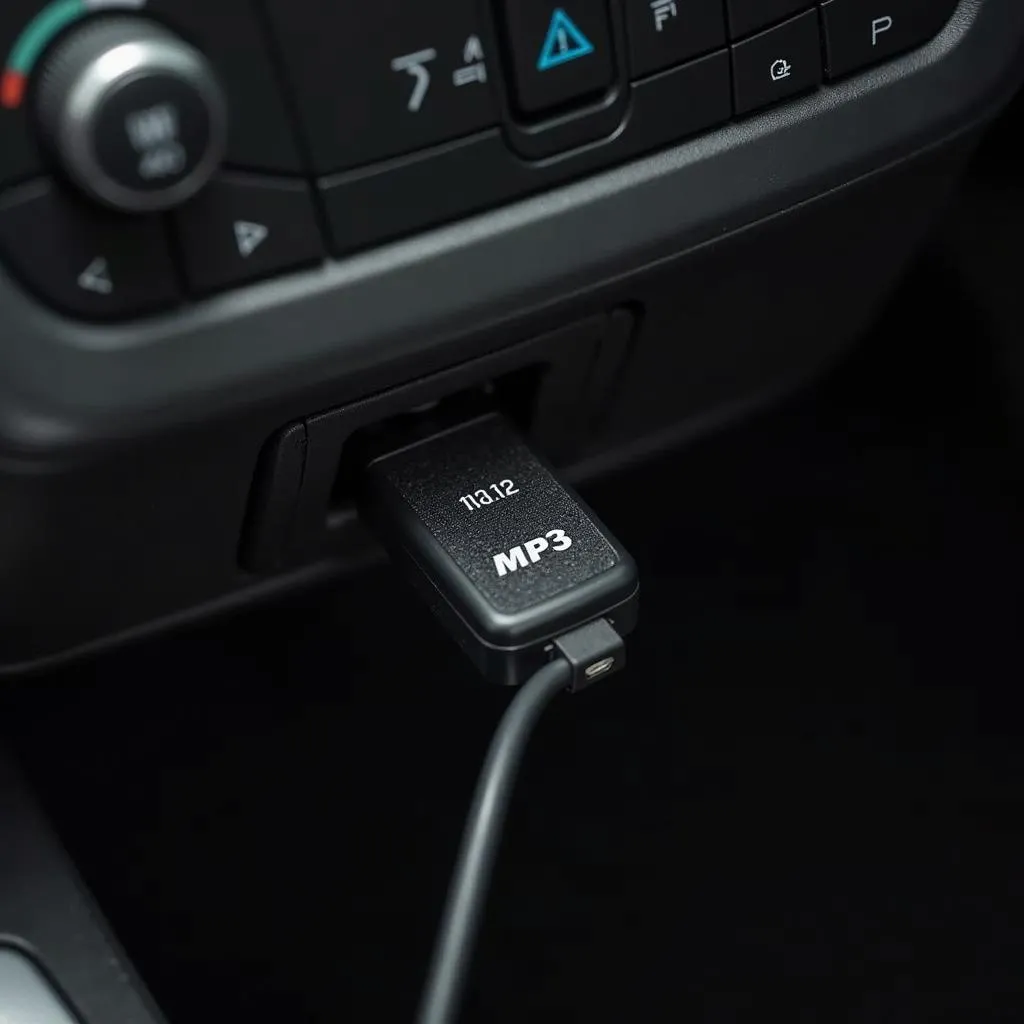The brake pad warning light on your VW Passat is a crucial safety feature designed to alert you of potential issues with your braking system. Ignoring this warning light could lead to reduced braking efficiency and even dangerous driving situations. This article dives deep into the common causes of a VW Passat brake pad warning light, provides troubleshooting tips, and outlines the necessary steps to rectify the problem.
Understanding Your VW Passat Brake Pad Warning Light
The brake pad warning light, often depicted as a circle with parentheses on either side and an exclamation mark in the middle, illuminates on your dashboard when the brake pad sensors detect wear and tear beyond a certain threshold. This system is designed to provide ample warning before the brake pads wear down completely, allowing you to address the issue proactively.
Common Causes of a VW Passat Brake Pad Warning Light
While worn brake pads are the most common culprit behind the illuminated warning light, several other factors can trigger this alert:
- Worn Brake Pad Sensors: Your Passat utilizes small sensors embedded within the brake pads. These sensors wear down with the brake pads and trigger the warning light when they come into contact with the brake rotor.
- Damaged Brake Pad Wiring: The wiring connecting the brake pad sensors to the vehicle’s electrical system can become damaged due to wear and tear, corrosion, or rodent chewing.
- Faulty Brake Fluid Sensor: Your Passat also has a brake fluid level sensor that can trigger the brake pad warning light if the brake fluid level drops too low.
- Issues with the ABS System: In some cases, a malfunctioning Anti-lock Braking System (ABS) can trigger the brake pad warning light.
Troubleshooting a VW Passat Brake Pad Warning Light
Before assuming the worst, it’s essential to troubleshoot the issue to determine the root cause:
- Check Your Brake Pads: Visually inspect your brake pads through the wheel spokes. Look for significant wear and tear. If the brake pad material is less than ¼ inch thick, it’s time for a replacement.
- Inspect Brake Pad Sensors: If your brake pads appear to have sufficient material, inspect the brake pad sensors for damage or disconnection.
- Check Brake Fluid Level: Pop open the hood and check the brake fluid reservoir. The reservoir will typically have markings indicating the minimum and maximum levels.
- Scan for Diagnostic Trouble Codes: While a visual inspection can often pinpoint the issue, connecting an OBD-II scanner to your Passat’s diagnostic port can provide more specific information about the warning light trigger.
Addressing the VW Passat Brake Pad Warning Light
The solution to your illuminated brake pad warning light will depend on the root cause:
- Worn Brake Pads: Replace your brake pads with high-quality replacements compatible with your Passat’s model year.
- Worn Brake Pad Sensors: If only the sensors are worn, you can replace them individually. However, it’s often recommended to replace both the pads and sensors simultaneously.
- Damaged Wiring: Repair or replace any damaged wiring harnesses related to the brake pad sensors.
- Low Brake Fluid: Top off your brake fluid with the recommended fluid type for your Passat.
“It’s crucial to remember that brake fluid is hydroscopic, meaning it absorbs moisture over time, leading to reduced braking efficiency. Regular brake fluid flushes are essential for maintaining optimal braking performance,” advises master VW technician, Mark Schmidt.
When to Seek Professional Help
While some DIY enthusiasts may feel comfortable tackling brake pad replacement, seeking professional assistance is recommended if:
- You’re unfamiliar with automotive repair: Brakes are critical safety components, and improper installation can have serious consequences.
- You encounter complex issues: If the problem extends beyond worn pads or sensors, a qualified mechanic can diagnose and repair the issue effectively.
- You lack the necessary tools: Specialized tools might be required for certain brake repairs.
VW Passat Brake Pad Warning Light: FAQs
1. Can I drive with the brake pad warning light on?
It’s highly discouraged to drive with the brake pad warning light illuminated. Doing so could lead to further damage and compromise your safety.
2. How much does it cost to fix a VW Passat brake pad warning light?
The cost can range from a few hundred dollars for simple brake pad and sensor replacement to over a thousand dollars for more complex issues like ABS module replacement.
3. How often should I replace my VW Passat’s brake pads?
Brake pad lifespan varies greatly depending on driving style and conditions. However, it’s generally recommended to have them inspected every 10,000 miles and replaced as needed.
“Remember, preventative maintenance is key to a healthy and reliable braking system. Don’t hesitate to consult your trusted mechanic at the first sign of trouble,” emphasizes Schmidt.
Conclusion
A glowing brake pad warning light on your VW Passat is not something to ignore. By understanding the potential causes, following the troubleshooting steps, and taking appropriate action, you can ensure your vehicle’s braking system remains in optimal condition, providing you with a safe and enjoyable driving experience.

